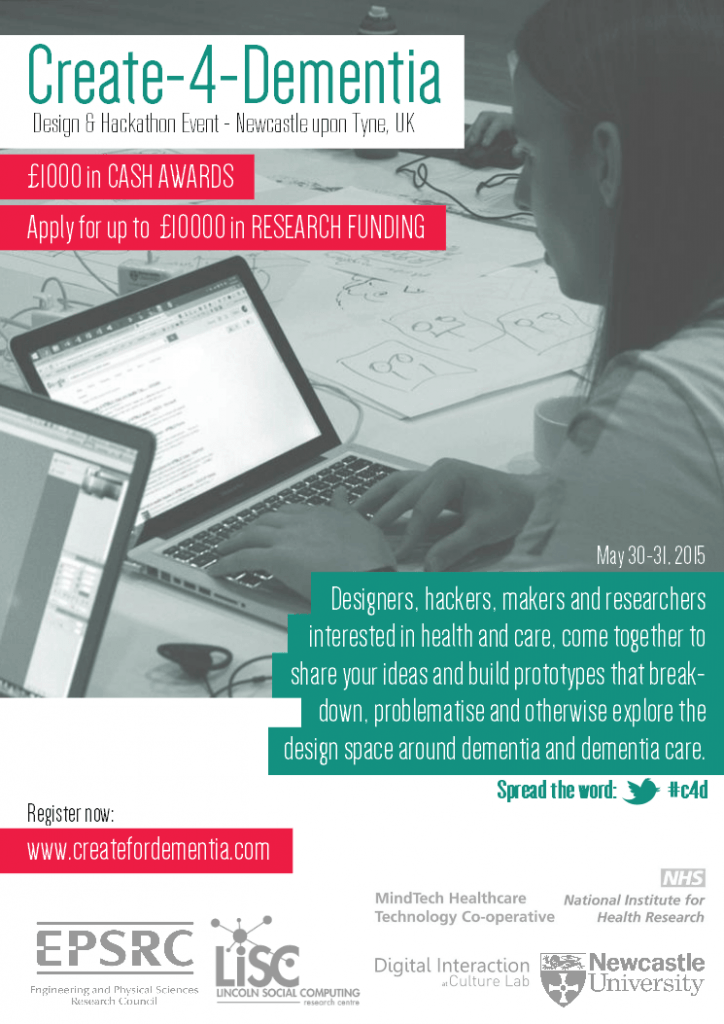Designers, coders, hackers and researchers are coming together for an event aimed at exploring how digital technologies could support and improve dementia care.
Create-4-Dementia, from 30th to 31st May 2015, is the first public event of the Social Computing and Mental Health Research Network led by the University of Lincoln, UK, and funded by the Engineering and Physical Sciences Research Council (EPSRC).
Thee two-day hackathon will culminate in the creation of digital prototypes.
Network leader Professor Shaun Lawson, from the School of Computer Science at the University of Lincoln, said: “The design of technology to address issues around dementia has received a lot of attention, but it remains a very difficult and sensitive area. At this event we want to draw in people with any and all relevant skillsets so that everyone’s voice is heard – in particular we want to see if we can rethink entire aspects of the approach to designing for dementia.”
The Social Computing and Mental Health Research Network was created to address challenges around creating online mental health services that could offer a more compelling and convenient way to access information, therapy and support.
The network, which is conducted in partnership with Newcastle University School of Computing Science in collaboration with NIHR MindTech Healthcare Technology Co-operative at Nottingham, aims to create a new interdisciplinary research community, by developing interaction between science, technology, clinical and commercial groups and charities.
Experts in a number of fields, such as social computing and human computer interaction, are working together to try and understand what the challenges are in using mobile and web applications, as well as social media, to assist people with mental health problems and create new collaborative multidisciplinary research proposals.
On the Create-4-Dementia event, Dr Michael Craven, Senior Research Fellow with MindTech and the University of Nottingham Faculty of Engineering, and member of the Centre for Dementia, said: “This is a great opportunity for engineers and software designers to engage with unmet needs in dementia and begin to formulate technology solutions.”
Teams will compete for juried prizes to the value of £1,000 and can apply for additional research funding of up to £10,000.
For more information on the event, which is taking place at the Great Northern Museum in Newcastle-Upon-Tyne, visit http://create4dementia.com/apply.
